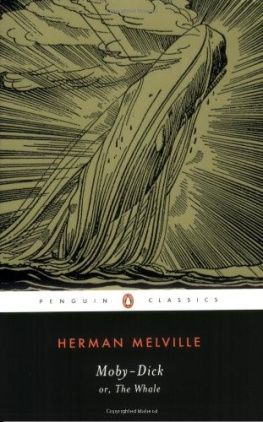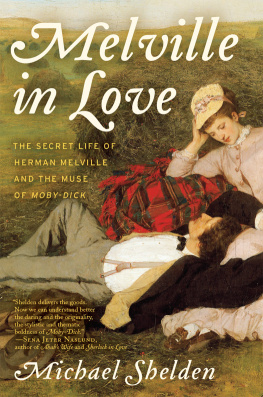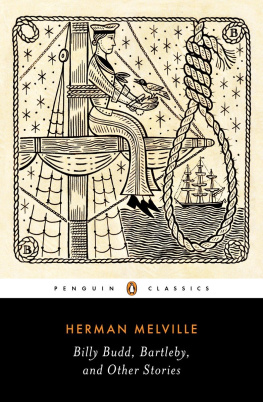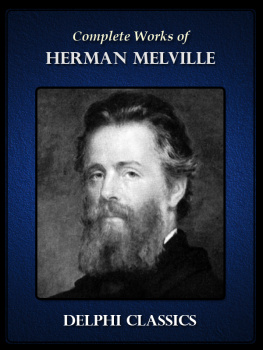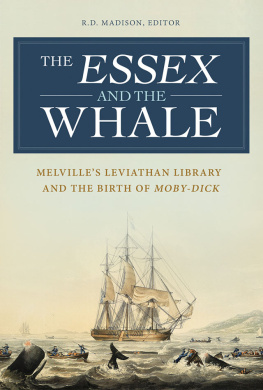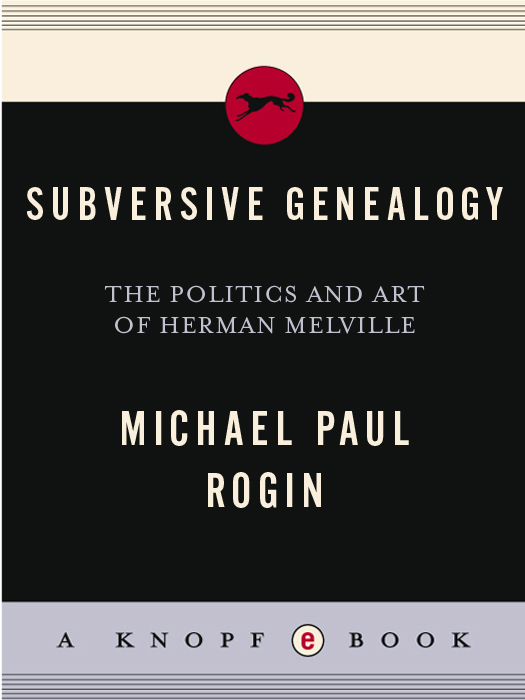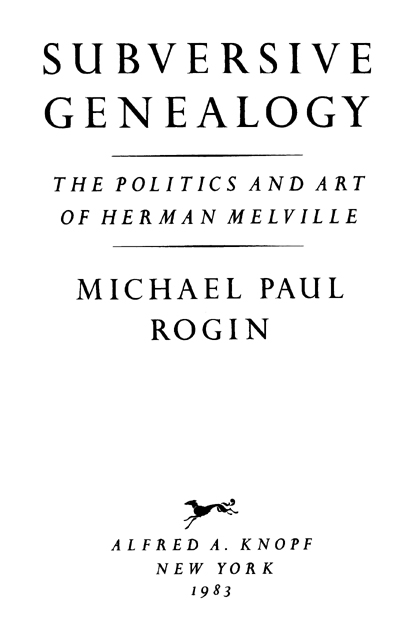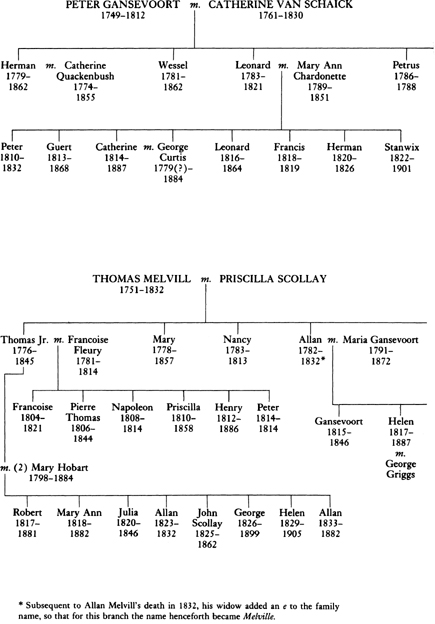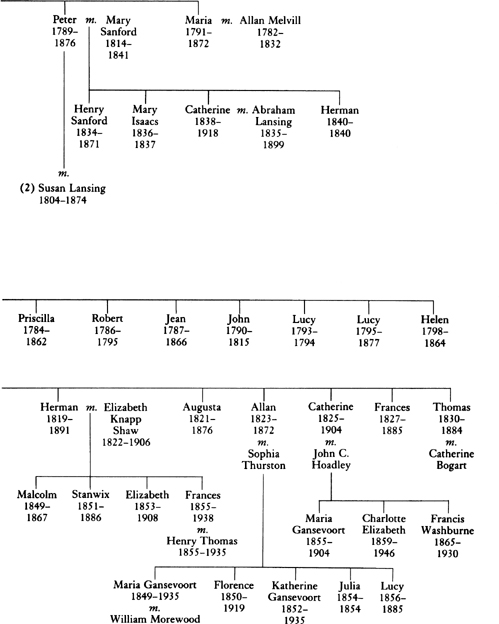Also by Michael Paul Rogin
The Intellectuals and McCarthy: The Radical Specter (1967)
Political Change in California:
Critical Elections and Social Movement, 18901966
(with John L. Shrover) (1970)
Fathers and Children:
Andrew Jackson and the Subjugation
of the American Indian (1975)
This is a Borzoi Book
Published by Alfred A. Knopf, Inc.
Copyright 1979, 1980, 1983 by Michael Paul Rogin
All rights reserved under International and Pan-American Copyright Conventions.
Published in the United States by Alfred A. Knopf, Inc., New York, and simultaneously in Canada by Random House of Canada Limited, Toronto. Distributed by Random House, Inc., New York.
The Somers Mutiny and Billy Budd: Melville in the Penal Colony originally appeared in Criminal Justice History: An International Annual, I (1980): 186224. Herman Melville: State, Civil Society, and the American 1848 originally appeared in The Yale Review.
Library of Congress Cataloging in Publication Data Rogin, Michael Paul. Subversive genealogy.
1. Melville, Herman, 18191891Political and social views. 2. Politics in literature. 3. Family in literature. I. Title. PS2388.P6R63 1983 813.3 82-48743
eISBN: 978-0-307-83094-4
v3.1
TO MY FATHER
Is the desolation of the land the result of the fatal embrace of the Deity? Hapless are the favorites of heaven.
Recorded by Melville in his Jerusalem Journal, January 1857
CONTENTS
PREFACE
This book makes several claims which ought to be stated at the outset: that Herman Melville is a recorder and interpreter of American society whose work is comparable to that of the great nineteenth-century European realists; that there was a crisis of bourgeois society at midcentury on both continents, but that in America it entered politics by way of slavery and race rather than class; that the crisis called into question the ideal realm of liberal political freedom; that Melville was particularly sensitive to the American crisis because of the political importance of his clan and the political history of his family; that a study of Melvilles fiction, and of the society refracted through it, must also be a history of Melvilles family, and of the writers relation to his kin; and finally, that Melville rendered American history symbolically, so that a history of his fiction, his family, and his psyche is also a history of the development and displacement of major symbols in his work.
The title of the book, Subversive Genealogy, has a four-fold meaning. It indicates the political origins of Melvilles fiction, and the subversion of those origins in his art. It also calls attention to the writers family genealogy, which was subversive of American political theory and practice in the nineteenth century. It suggests Melvilles subversion of his own genealogy, his use of his family history not only against American political orthodoxies but against his family as well. And it points, finally, to the genealogy which itself subverted Melville in the end. Melvilles clan was prominent in American politics for three generations from the Revolution to the Civil War. Family connections located the writer at the center of the dominant public issues of his time: Manifest Destiny, slavery, and capitalist expansion. But the radical terms on which his family enmeshed him in politics isolated Melville. It encouraged his absorption into texts that were increasingly self-referentialin their private meanings for Melville, their hidden stories about his family, and their isolation from a realistic social world. Subversive Genealogy tells that story.
I have borrowed the title from an essay by my college professor, Judith Shklar. She would not approve of all the uses to which I have put her oxymoron, however, and so my book has a subversive genealogy of its own. I thank Judith Shklar for permission both to use her title and to write my book.
I first conceived this project as a Fellow at the Center for the Humanities, Wesleyan University. Hayden White, John Schaar, and Richard Slotkin offered critical initial support. Debora L. Silverman clarified the European 1848, enabling me to situate the antebellum American political crisis in a comparative setting. Clare Spark was illuminating about Melvilles relation to nineteenth-century sentimental culture. Eric Sundquist untangled James Fenimore Cooper for the prologue. I am grateful to Stephen Greenblatt, Hanna Pitkin, and Paul Roazen for reading the manuscript. I also benefited from many conversations with Stephen Greenblatt, whose work has influenced my own. Most important, my friends Jim Breslin, Kim Chernin, Kathleen Moran, Carolyn Porter, and Michael Shute have been talking with me about this book since its inception. Each responded to an earlier version in loving and critical detail, and one or another of them is present on almost every page.
Several Berkeley students are acknowledged in footnotes; I am indebted to many others as well and to the seminars in which we learned from one another. Ashbel Green kept the book from losing direction and substantially improved its clarity. Grace Rutledge typed the manuscript and was a helpful, sympathetic reader. Linda Zerilli checked the accuracy of quotations from Melville and other sources. The work was supported by grants from the National Endowment for the Humanities, and from the Committee on Research of the Academic Senate, University of California, Berkeley.
The dedication is to my father, Larry Rogin, a textile workers organizer during the years I was growing up, and a labor educator now for half a century. The acknowledgment to my father concludes the genealogy of this book. It introduces both Melvilles father, a clothing textile importer, and the issue of clothing in Melville with which I shall begin.
THE GANSEVOORT-MELVILL(E) FAMILY TREES
PROLOGUE THE RED ROVER
THE RED ROVER I
Egotistically, then, we would have preferred for the Red Rover a flaming suit of flame-colored morocco, as evanescently thin and gauze-like as possible, so that the binding might happily correspond with the sanguinary, fugitive title of the book.
Herman Melville, A Thought on Book-Binding
Herman Melville reviewed The Red Rover, James Fenimore Coopers tale of the sea, as he was beginning



